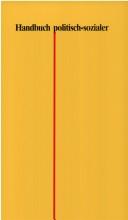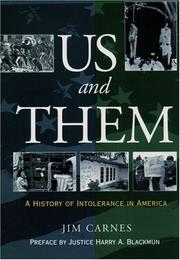| Listing 1 - 10 of 22 | << page >> |
Sort by
|

ISBN: 348653131X 3486824546 Year: 1986 Publisher: München Oldenbourg
Abstract | Keywords | Export | Availability | Bookmark
 Loading...
Loading...Choose an application
- Reference Manager
- EndNote
- RefWorks (Direct export to RefWorks)
Fanaticism. --- Intolerance --- Zealotry --- Enthusiasm

ISBN: 1135753644 0429230230 1280096160 0203320581 9780203320587 0714685844 0714657166 9781135753641 9781135753597 9781135753634 9780714657165 9780714685847 1135753636 9780429230233 9781280096167 Year: 2005 Publisher: London ; New York : Frank Cass,
Abstract | Keywords | Export | Availability | Bookmark
 Loading...
Loading...Choose an application
- Reference Manager
- EndNote
- RefWorks (Direct export to RefWorks)
What is fanaticism? Is the term at all useful? After all, one person's fanatic is another's freedom fighter. This new book probves these key questions of the twenty first century.It details how throughout history there have been fanatics eager to pursue their religious, political or personal agendas. Fanaticism has fuelled many of the conflicts of the twentieth century, in particular the theatres of combat of the Second World War. More recently, religious fanaticism has bedevilled affairs in the Middle East and elsewhere. Is fanaticism becoming more fanatical in the new millennium? <
Fanaticism --- Military history, Modern --- Intolerance --- Zealotry --- Enthusiasm --- History
Multi
ISBN: 9781784997250 1784997250 0719089883 9780719089886 9781526104007 1526104008 9781784996635 1784996637 9780719089886 Year: 2015 Publisher: Manchester, UK : Manchester University Press,
Abstract | Keywords | Export | Availability | Bookmark
 Loading...
Loading...Choose an application
- Reference Manager
- EndNote
- RefWorks (Direct export to RefWorks)
This work concentrates on the notorious case of the French Prophets as the epitome of religious enthusiasm in early Enlightenment England. Based on new archival research, it retraces the formation, development and evolution of their movement and sheds new light on key contemporary issues such as millenarianism, censorship and the press, blasphemy, dissent and toleration, and madness.
Enthusiasm --- Prophecy --- Camisards --- Religious aspects --- Christianity. --- Christianity --- History --- England --- Church history --- Camisards. --- Dissent. --- Enlightenment. --- Enthusiasm. --- Huguenots. --- Madness. --- Millenarianism. --- Prophecy. --- Toleration.
Book
ISBN: 1280697849 9786613674807 0809386798 9780809386796 9780809329397 9781280697845 661367480X Year: 2009 Publisher: Carbondale : Southern Illinois University Press,
Abstract | Keywords | Export | Availability | Bookmark
 Loading...
Loading...Choose an application
- Reference Manager
- EndNote
- RefWorks (Direct export to RefWorks)
Enthusiasm --- Puritans. --- Precisians --- Church polity --- Congregationalism --- Puritan movements --- Calvinism --- Religious aspects --- Christianity.
Book
ISBN: 1469629739 1469629747 9781469629742 1469629712 1469629720 9798890850508 9781469629735 Year: 2016 Publisher: Chapel Hill : Baltimore, Md. : University of North Carolina Press, Project MUSE,
Abstract | Keywords | Export | Availability | Bookmark
 Loading...
Loading...Choose an application
- Reference Manager
- EndNote
- RefWorks (Direct export to RefWorks)
"In this study of literature in antebellum America, John Mac Kilgore argues that a distinct rhetorical tradition of enthusiasm emerged as a form of political dissent. This was literature written to confront normative values, to respond to critical injustice, and to incite revolt, if not broad change. Literary enthusiasm came to signify a particular form of protest among marginalized groups, including commoners, slaves, immigrants, Native Americans, women, and abolitionists. These dissenting voices, these enthusiasts, fought against what they viewed as tyranny while using their writings to forge international or anti-nationalistic political affiliations"--
Book
ISBN: 9783031669101 303166910X Year: 2024 Publisher: Cham Springer Nature Switzerland :Imprint: Springer
Abstract | Keywords | Export | Availability | Bookmark
 Loading...
Loading...Choose an application
- Reference Manager
- EndNote
- RefWorks (Direct export to RefWorks)
This book explores the concept of 'Passion' as a strong motivational force that can increase well-being and quality of life. The authors focus on the importance of having passion in various areas of life, to increase well-being, life satisfaction, and promote meaning in life. They go on to present how we can find and increase passion, supported by various psychological theories and research. Finally, the authors connect passion to expertise. They argue that it is essential to maintain passion during the process that leads to expertise, which is characterized as a long and demanding process that can be associated with negative consequences.
Enthusiasm. --- Social psychology. --- Psychobiology. --- Developmental psychology. --- Social Psychology. --- Biological Psychology. --- Developmental Psychology. --- Psicologia social --- Psicobiologia del desenvolupament --- Emocions --- Èxit

ISBN: 9781526125118 1526125110 9781526126306 1526126303 9780719095849 0719095840 9780719074288 0719074282 Year: 2007 Publisher: Manchester : Manchester university press,
Abstract | Keywords | Export | Availability | Bookmark
 Loading...
Loading...Choose an application
- Reference Manager
- EndNote
- RefWorks (Direct export to RefWorks)
This book takes enthusiasm to be a defining feature of American literature, showing how successive major writers – Melville, Thoreau, Pound, Moore, Frank O’Hara and James Schuyler – have modernized and re-modeled Emerson’s founding sense of enthusiasm. The book presents the writer as enthusiast, showing how enthusiasm is fundamental to the composition and the circulation of literature. Enthusiasm, it is argued, is the way literary value is passed on. Starting with a brief history of enthusiasm from Plato to Kant and Emerson, the book features chapters on each of Melville, Thoreau, Pound, Moore, O’Hara, and Schuyler. Each chapter presents an aspect of the writer as enthusiast, the book as a whole charting the changing sense of literary enthusiasm from Romanticism to the present day. Lucidly written and combatively argued, the book will appeal to readers of American Literature or Modern Poetry, and to all those interested in the circulation of literary work.
Enthusiasm in literature. --- American literature --- History and criticism. --- Literature --- Literature: History & Criticism --- LITERARY CRITICISM / American / General --- Literature: history & criticism --- American literature. --- Agrarians (Group of writers) --- Ezra Pound. --- Frank O'Hara. --- Henry David Thoreau. --- Immanuel Kant. --- James Schuyle. --- Marianne Moore. --- Ralph Waldo Emerson. --- Socrates. --- William Penn. --- cultural activism. --- enthusiasm. --- nearer testament. --- polemic. --- transmission of literature. --- unbridled self. --- Enthusiasm in literature

ISBN: 1280603178 0199761221 1423774655 9780199761227 0195131258 0195103785 9780195103786 9780195131253 9786610603176 6610603170 Year: 1999 Publisher: New York, New York ; Oxford : Oxford University Press,
Abstract | Keywords | Export | Availability | Bookmark
 Loading...
Loading...Choose an application
- Reference Manager
- EndNote
- RefWorks (Direct export to RefWorks)
Prejudices --- Fanaticism --- Intolerance --- Zealotry --- Enthusiasm --- Bias (Psychology) --- Prejudgments --- Prejudice --- Prejudices and antipathies --- Attitude (Psychology) --- Emotions --- History. --- United States --- Race relations. --- Race question
Book
Year: 2018 Publisher: Böhlau
Abstract | Keywords | Export | Availability | Bookmark
 Loading...
Loading...Choose an application
- Reference Manager
- EndNote
- RefWorks (Direct export to RefWorks)
"Bernhard Thonhofer researched street life in Graz at the beginning of World War I 1914 and how the Burgfrieden was shaped subsequently. By that a transformation process from a fragmented militarized society in times of peace to a society in times of war is portrayed, with its asynchrony and discrepancy, but also in its outlines. This ""unity"" on the streets was full of breaches and contradictions from the start. The people of Graz transformed not into a monolithic ""war society"" free of political, national, confessional or gender-specific conflicts. In fact the 4 years of ""Volkskrieg"" damaged coexistence in Graz."
History --- Graz --- Styria --- First World War --- homefront --- war enthusiasm --- truce policy --- microhistorical approach --- Steiermark --- Erster Weltkrieg --- Heimatfront --- Kriegsbegeisterung --- Burgfrieden --- Mikrogeschichte --- Arbeiterwille --- Grazer Tagblatt --- Grazer Volksblatt --- History.
Book
ISBN: 0429484666 1782411151 9781782411154 1782200193 9781782200192 9781299725560 1299725562 042992366X Year: 2018 Publisher: Boca Raton, FL : Routledge,
Abstract | Keywords | Export | Availability | Bookmark
 Loading...
Loading...Choose an application
- Reference Manager
- EndNote
- RefWorks (Direct export to RefWorks)
This is a scholarly study in which the author explores a difficult subject matter that has been a tabooed topic in psychoanalysis. She undertakes a serious study of the underlying arguments as to why psychoanalysts have seldom been able to live in harmony with each other. In a very lucid and systematic manner, the author examines how a discipline, in this case psychoanalysis, can be manipulated to its detriment. She explains the disquieting processes that take place, which impede the development of psychoanalysis. These influences insidiously infiltrate the organisational ranks as a kind of arguing which should ostensibly enrich psychoanalysis but instead deprives it of its creativity. For a discipline to prosper, it is necessary to have the freedom to air doubts, ask questions, raise hypotheses, and contrast discoveries by sharing them with others, debating different positions to reflect on the discussions, and to change one's views if necessary.
Psychotherapy. --- Psychoanalysis. --- Fanaticism --- Interprofessional relations. --- Competition (Psychology) --- Competitive behavior --- Competitiveness (Psychology) --- Conflict (Psychology) --- Interpersonal relations --- Motivation (Psychology) --- Cooperation --- Professions --- Intolerance --- Zealotry --- Enthusiasm --- Psychology --- Psychology, Pathological --- Psychagogy --- Therapy (Psychotherapy) --- Mental illness --- Clinical sociology --- Mental health counseling --- Psychological aspects. --- Treatment
| Listing 1 - 10 of 22 | << page >> |
Sort by
|

 Search
Search Feedback
Feedback About UniCat
About UniCat  Help
Help News
News